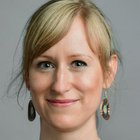The Current Column
Arctic exceptionalism?
Shared challenges of cities in and beyond the Arctic
Götze, Jacqueline, Dorothea Wehrmann, Michał Łuszczuk, Katarzyna Radzik-MaruszakThe Current Column (2021)
Bonn: German Development Institute / Deutsches Institut für Entwicklungspolitik (DIE), The Current Column of 2 November 2021
How can cities adapt for climate resilience in and beyond the Arctic? This year’s World Cities Day on 31 October evolved around this particular global need. It marks the culmination of Urban October and coincides with the start of the Conference of the Parties (COP 26) to the UN Framework Convention on Climate Change (UNFCCC). They all emphasise strong interdependencies between urbanisation and the climate crisis: On the one hand, current urban infrastructures are inadequate to tackle climatic change challenges. On the other hand, cities cause 75 per cent of global emissions and continue to grow: By 2050, two-thirds of humanity is expected to be living in cities. Both challenges also apply to the Arctic.
Notwithstanding different geographic factors and existing governance frameworks, local authorities are struggling with building resilient cities. Examples such as typhoons in South East Asia, hurricanes in the United States and floods in Germany all reveal vulnerable infrastructure and the need for change. Still, the climate crisis has affected some cities more than others. Particularly port cities will experience coastal flooding and loss of land affecting at least 130 million people. Cities in the Arctic are getting warmer at twice the rate at least than other regions and thus, belong to primarily vulnerable places. They further delineate that questions of how cities can adapt for climate resilience and how urban development in and beyond the Arctic impacts global futures should not be separated. Both require solutions that are coherent and specific to local contexts.
At first sight, urbanisation is shaping the Arctic as it does almost everywhere: urban-rural compositions have changed and more people are moving to cities. In the Arctic, however, permafrost degradation is destabilising the infrastructure: “There isn't a single settlement in Russia's Arctic where you wouldn't find a destroyed or deformed building”. Due to the region’s remoteness, the Arctic’s more than four million inhabitants rely heavily on the connecting infrastructure. Consequently and similar to coastal cities affected by flooding, Arctic cities can only adapt to permafrost degradation by resettling. Resettlement strategies often conflict with landownership rights. Like many cities in the Arctic, Kiruna/Giron (North Sweden) is located on traditional Indigenous land. The city’s expansion restrains the traditional land use of the Saami people. Here, urbanisation acts as one integral part of colonisation and its legacies: different types of land use are competing against each other and Indigenous communities are still often considered as rural people. Kiruna further exemplifies how resource extractive economic activities increase urban migration as well as the building of new infrastructure. Both ultimately also accelerate climate change.
Economic reasons will remain a main pull factor for urban migration, which relates to controversial questions of priorities: economy vs environment. In this regard, interests often clash not only among different stakeholders but also across governance-levels. Regardless of such contradictory positions, the most promising Arctic adaptation strategy is its focus on cooperation, participatory approaches and local governance. The region displays a long tradition of including diverse stakeholders into policy-making. The so-called Nordic local governance model (applied in Denmark, Finland, Norway, Sweden and Iceland) features a network approach based on the inclusion of stakeholders representing different sectors and groups. The model frames cooperation as crucial to share knowledge. On similar lines, cities in the European Arctic also have experience in cooperating with one another, often across borders in city networks like the Arctic Mayors Forum. The forum aims at pooling expertise and voices from the local level to have a greater impact on higher governance levels. It thus supports the local embedding of global arrangements and the transfer of local experiences and knowledge, which lastly contribute to more coherent policy approaches for local adaptation.
Despite the particular grave challenges Arctic cities face in light of climate change, the governance arrangement that could contribute to deal with these challenges might also support cities elsewhere. The empowerment of the local level and the region’s cooperative approach are also strategies promoted by the World Cities Day 2021, which identifies cooperation among cities as key for achieving the SDGs and the Paris Climate Agreement. UN Secretary-General António Guterres likewise demands the engagement of urban communities in policy-making and their empowerment with financial resources to ensure “more inclusive and durable” results. In this way, strengthened political frameworks that allow for more cooperation across different governance levels, in the Arctic and beyond, are necessary. By viewing city networks as responsible and competent actors, we can tap into their potential to contribute to regional solutions for tackling transboundary challenges.
This text was produced as part of the research project “Sustainable Urban Development in the European Arctic (SUDEA): Towards Enhanced Transnational Cooperation in Remote Regions” (project no. 426674468), which is being funded by the German Research Foundation (DFG) and by the National Science Centre (NCN) in Poland (Agreement UMO - 2018/31/G/HS5/02448).
Michał Łuszczuk, PhD is an associate professor in the Department of Social and Economic Geography at the Institute of Socioeconomic Geography and Spatial Management at the Maria-Curie-Skłodowska-University in Lublin, Poland. He is co-leader of the SUDEA project.
Katarzyna Radzik-Maruszak, PhD is an associate professor in the Maria-Curie-Skłodowska-University in Lublin, Poland Department of Public Administration at the Faculty of Political Sciences and Journalism. She works as researcher in the SUDEA project.



